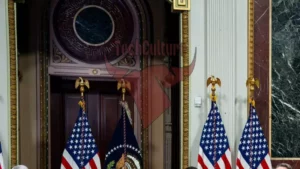In a recent development, the United Auto Workers (UAW) union has hinted at the possibility of implementing targeted strikes if negotiations with Detroit automakers fail to yield satisfactory results. Targeted strikes, as the name suggests, involve work stoppages at specific plants, often due to localized contract disputes. While the UAW has not yet confirmed any specific plans, this announcement has created a sense of uncertainty within the industry.
Targeted strikes can have a significant impact on the production and operations of automakers, as they disrupt the supply chain and create bottlenecks in manufacturing. By focusing their efforts on specific plants, the UAW aims to put pressure on the Detroit automakers to address their concerns and negotiate fair contracts. These strikes can be seen as a strategic move by the union to exert leverage and protect the rights and interests of its members.
However, it is important to note that targeted strikes can also have unintended consequences. They can lead to tensions between the union and the management, potentially affecting labor relations in the long run. Moreover, such strikes may disrupt the livelihoods of not only the workers directly involved but also those indirectly dependent on the automotive industry. Therefore, it is crucial for both parties to engage in constructive dialogue and find mutually beneficial solutions to avoid the escalation of conflicts.
The UAW’s consideration of targeted strikes if negotiations with Detroit automakers do not yield favorable outcomes highlights the potential for labor disputes within the industry. While these strikes can be an effective tool for the union to address specific concerns, they also carry risks and implications for all stakeholders involved. As the situation unfolds, it remains to be seen how the negotiations will progress and what steps both the UAW and the automakers will take to reach a resolution.



